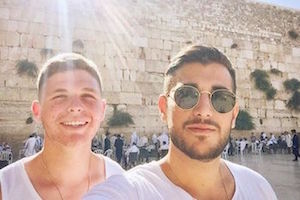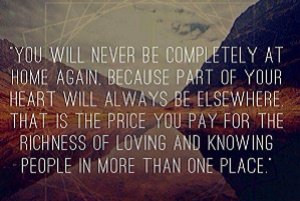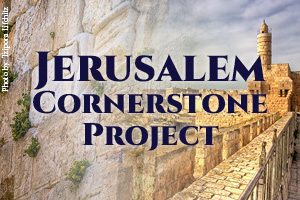Funny, You Don’t Look Indigenous
By Ruth Mastron
Jewish history is Jewish destiny. The Jews are the only indigenous people in history to have returned to our ancestral lands and achieved sovereignty there.
TRADITION!
The matchbox popped out of my sweaty hands as I tried to light my Anatevka Shabbos candles while singing an off-key duet of “Sabbath Prayer” with Tevye. At 16, I was playing Golde in our synagogue youth group’s production of “Fiddler on the Roof.” We were in well over our heads, but we bravely deployed our minimal talents in a spectacle punctuated by inexplicable blackouts, missed cues, and collapsing scenery.
In short, we were awful, and it was dire, but our families and friends gave us an undeserved standing ovation. Fortunately, the play was not the thing: the goal was to understand our Jewish identity by recreating a romanticized shtetl in suburban San Diego. These are our roots! This is where we come from! This is who we are!
Except they aren’t, we didn’t, and it’s not.
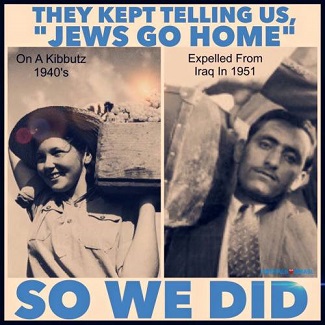
Eastern Europe—like Western Europe, North Africa, and so many others—was never more than a stopping point, another place we happened to find ourselves during our long, wandering exile. Even if we spent a few centuries there, our roots were temporary and shallow, no deeper than the topsoil. And just as fragile. As my grandfather put it, “We left because of a slight disagreement with the neighbors. They kept trying to kill us, and we disagreed.”
DIASPORA
The truth is that the place any Diaspora Jew is born is an accident, with no particular meaning or significance. “Diaspora” means the dispersion of a group of people from their original homeland, so the word itself makes clear that we are not Eastern Europeans, or indeed natives of anyplace outside our original homeland of Israel: our indigenous, sacred land.
There has been a continuous Jewish presence in Israel despite multiple expulsions and exiles, and our homeland is mentioned thousands of times in our sacred writings, in our poetry, music and prayers. Jewish scholars recognize that some of the 613 mitzvot can be performed only in the land of Israel, though they predictably disagree on how many and which ones.
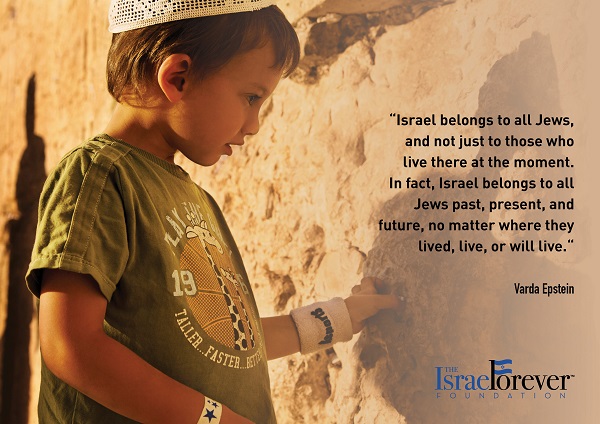
We see this kind of connection between the land, the spirit and the people in other indigenous populations. Keokuk, Iowa, a small Mississippi river town, plays host every winter to Bald Eagle Appreciation Days. While enjoying the events, I spoke with an elderly Cherokee lady, an expert in Native American genealogy.
We discussed the difficulties in documenting Native families when records have been destroyed, poorly maintained, or not kept at all - similar to many Jewish family records. She told me that when the Cherokee tell the story of the Trail of Tears—the brutal, deadly expulsions and forced marches of various tribes from their homelands—they always speak in the present tense and in the first person. I mentioned that Jews do the same thing with the story of the Exodus, retold during every Seder. She said, “Of course you do! And your tribe has finally come home.”
HOME
You don’t need ruby slippers to know there’s no place like home. On my first trip to Israel, I stepped off the plane and instantly felt as if my feet began to grow roots deep, deep into the soil of my homeland. I’d never seen it before, but I knew it from ancestral memory, knew it better than I know my own name, knew that I was finally done searching through other cultures and philosophies for a place where I belong, and a place that belongs to me.

Every time I look at the hills around Jerusalem, I see 120 generations of my ancestors dancing together in a huge circle. They see me, smile, and open the circle so I can finally take my place among them. And they welcome me home.
TRIBAL
Like the Cherokee woman in Keokuk, members of indigenous tribes recognize each other. Ryan Bellerose, a Canadian Métis indigenous activist, states, “Archaeology, genealogy, and history all support the Jewish claim to indigeneity.”
In “Indian Country Today”, Samara Brill Alpern outlines in more detail the land-spirit-people connections among indigenous peoples:
That Jews are indigenous to Israel is indisputable. The story of the Jewish people is known to the whole world. Abraham, Rachel, Joseph, Moses — whether you believe the Torah to be the word of G-d or not, there is no doubt that these are our stories. This is Jewish tribal history. It is a history that was never forgotten, not under imperial subjugation by the Babylonians nor the Persians, not under the Hellenists, the Romans, Arabs, Crusaders, Mamluks, Ottomans, or the British.
Though Jews never completely left Israel, most were forced into exile. But even after 2,000 years in the diaspora, we never forgot our connection to our ancestral homeland. In exile we prayed, as observant Jews do today, to Jerusalem every day. Facing expulsions, massacres, and genocides, we maintained our language, our matrilineal blood ties, our dietary practices, our beliefs.
King Solomon established the First Temple in the tenth century BCE, 1,500 years before Muhammed was born. Muslim conquerors would build the al-Aqsa mosque on top of the Jewish temple, just as Hernan Cortes built his castle on top of the great palace Tlahuica. Such is imperialism.
Dividing the Israelites from Israel is like dividing the Diné from Dinétah.
HOPE
Anyone who supports the rights of indigenous peoples should point to the Jews as a model of success, an inspiration to all peoples who have been dispossessed and colonized.
Despite everything that was done to us for thousands of years to separate us from our faith, our people, our culture, our nation, our language, and ultimately our land, we represent the only case in history of an indigenous people returning to its ancestral land, reviving its ancient language and continuing to practice its traditions and rituals in the same place they first developed. We are a “light unto the nations”, showing paths to save endangered languages and cultures from extinction, and to re-establish native sovereignty.
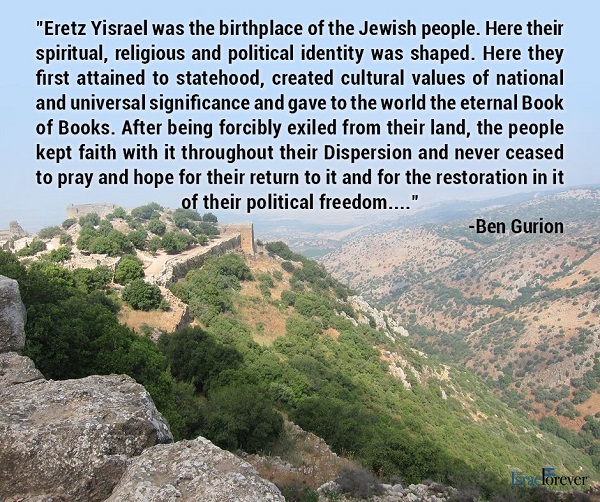
FOOD FOR THOUGHT
- We read that Jewish history is Jewish destiny. Have you heard this before? What does that mean to you? How would your life and the life of your family be different if Jewish history was different?
- “There has been a continuous Jewish presence in Israel despite multiple expulsions and exiles, and our homeland is mentioned thousands of times in our sacred writings, in our poetry, music and prayers. Jewish scholars recognize that some of the 613 mitzvot can be performed only in the land of Israel.” Were you aware of the continuous direct connection between the Jewish people and the land of Israel? How do you feel about having such a meaningful tie to the Jewish homeland?
- “I’d never seen [the land of Israel] before, but I knew it from ancestral memory.” What do you know about Israel from “ancestral memory”? If you have been to Israel, what do you think is important for others to know?
- “Facing expulsions, massacres, and genocides, we maintained our language, our matrilineal blood ties, our dietary practices, our beliefs.” Does this help you gain a better understanding of Jewish pride? Does it help you to understand why it is so important to stand up for Jewish rights?
- An indigenous activist wrote: “Archaeology, genealogy, and history all support the Jewish claim to indigeneity.” Can you give some examples of how this is so?
Recommended for you:
About the Author


